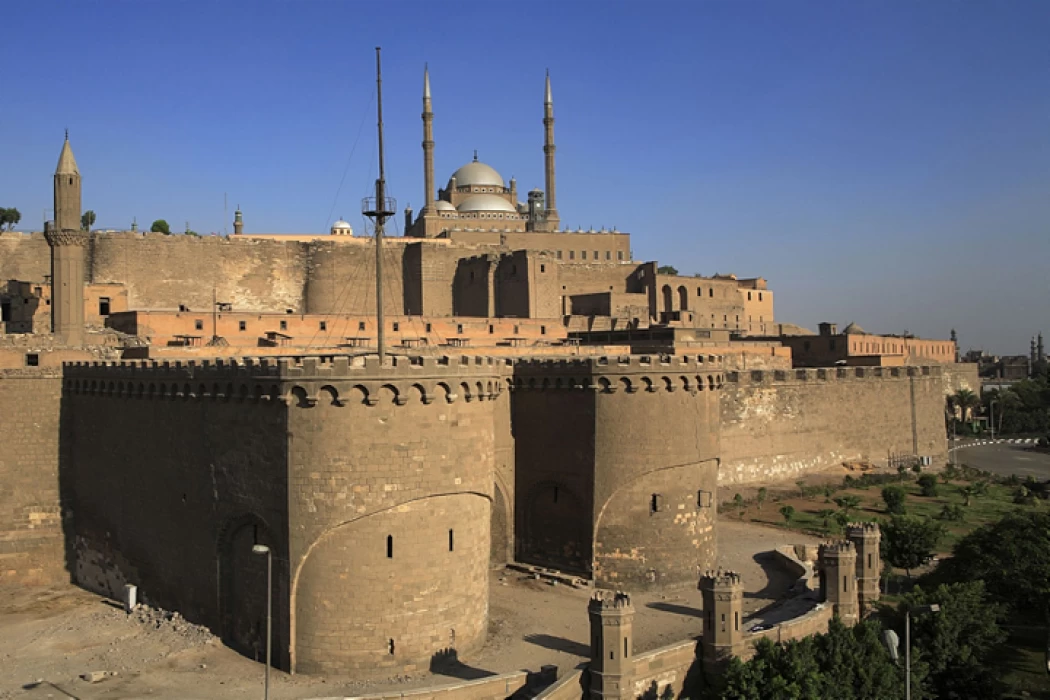- Home
-
Egypt Day Tours
- Cairo Day Tours
- Luxor Day Tours
- Aswan Day Tours
- Sharm El Sheikh excursions
- Hurghada Day tours
- Dahab Day Tours
- Taba Day Tours
- Marsa Alam Day Tours
- Cairo Day Tours from Airport
- Cairo Half Day Tours
- Cairo Overnight Tours packages
- Cheap Giza Pyramids budget Tours
- Egypt Wheelchair Accessible Day Tours
- Cairo Cheap Budget Tours
- Alexandria day tours
- Nuweiba excursiones
- El Gouna Day Tours
- Port Ghalib Day Tours
- Soma Bay Excursions
- Makadi Bay Excursions
-
Egypt Travel Packages
- Egypt Desert Safari Tours
- Egypt Classic Tours
- Egypt Christmas Tours
- Egypt Easter Tours
- Egypt Luxury Tours
- Egypt Nile Cruise Tours
- Egypt Holidays Hot Offers
- Egypt Tour Itineraries
- Cairo Short Breaks packages
- Egypt Wheelchair Accessible Tours
- Honeymoon Tour Packages
- Egypt Cheap Budget Tours
- Egypt group tour packages
- Egypt Luxury Small Group Tours
- Egypt Family Tours
- Egypt and Holy Land Tours
- Egypt Shore Excursions
Latest Articles
-
![Atlas Studios Atlas Studios]()
Atlas Studios
Atlas Studios, also known as Film City, is a well-known film studio in Morocco. It has been used as a filming location for many international movies and TV shows.
-
![Rabat Rabat]()
Rabat
Rabat is the capital city of Morocco, located on the country's Atlantic coastline. It is situated across the Bouregreg River from the city of Salé and forms the Rabat-Salé urban area. With a rich history dating back to the Roman era, Rabat is known for its blend of modernity and traditional Moroccan architecture.
-
![Erfoud Erfoud]()
Erfoud
Erfoud is a city located in eastern Morocco, known as the gateway to the Sahara Desert. It is a popular destination for travelers seeking to explore the stunning desert landscapes and experience the unique culture and hospitality of the region. Erfoud offers opportunities for camel trekking, visits to the nearby Merzouga Dunes, and exploring the local markets and traditional crafts.
-
![Merzouga Dunes Merzouga Dunes]()
Merzouga Dunes
The Erg Chebbi Dunes, also known as the Merzouga Dunes, are a stunning natural wonder located in southeastern Morocco. These majestic dunes stretch as far as the eye can see, with some reaching heights of up to 150 meters. The Erg Chebbi Dunes are a popular destination for travelers looking to experience the beauty of the Sahara Desert.
-
![Khenifiss National Park Khenifiss National Park]()
Khenifiss National Park
Explore the beauty of Morocco's natural reserve at Khenifiss National Park. Located in the southwestern part of the country, this park is home to diverse wildlife and stunning landscapes. Visitors can enjoy hiking, birdwatching, and exploring the unique ecosystems found in the park.
-
![Ouzoud Waterfalls Ouzoud Waterfalls]()
Ouzoud Waterfalls
The Ouzoud Waterfalls, located in the Atlas Mountains of Morocco, are a stunning natural wonder and a popular tourist destination. The falls cascade over a series of rocky cliffs, creating a breathtaking sight and a refreshing mist in the air. Visitors can hike down to the base of the falls, passing by olive groves and encountering local Barbary macaque monkeys along the way.

Sultan of Egypt Salah El-Din Al-Ayoubi
The Muslim ruler of Egypt and Syria, Saladin (1137–1193), ruled from 1174 to 1193. He stunned the West by vanquishing an army of Christian Crusader states at the Battle of Hattin and taking Jerusalem in 1187.
Leader of the best of humanity and witnessed by his morals his enemies from the Crusaders Before his friends and wrote his biography, he is a unique example of a giant made from Islam, he is the hero Salahuddin Al-Ayoubi, the liberator of Jerusalem from the Crusaders and the hero of the battle of Hittin.
The last years of the Fatimid state’s life in Egypt witnessed a fierce conflict between “Shawar” and “Dergham” over the position of the ministry, and neither of them succeeded in resolving the conflict for their benefit, and the individual held the high position, so each of them used external power to help him achieve his goal.
Dergham used the Crusaders, The other used Nur al-Din Mahmoud Sultan of Aleppo, and the two parties answered the invitation, and a race began between them to exploit this conflict each in his favor, and to seize Egypt, which is of great importance to them in extending their influence and authority in that region.
The conflict ended with the elimination of the two competing ministers in 564 AH = 1168 CE. Asad al-Din Shirkuh, the leader of Nur ad-Din’s campaign, assumed the position of the cabinet for the Fatimid caliph al-Atid al-Fatim. Soon, Shirkuh died.
In the era of Salah al-Din, the construction of fences, settlements, and castles emerged. Among the most famous of these monuments is “Castle of the Mountain”, which is now known as Salah al-Din Citadel to be the seat of his government, a stronghold for his army, and an impenetrable fortress that enabled him to defend Cairo, As is the iconic picture of Islamic Cairo that was built by Salah El-Din El Ayouby, at the end of the 12th century,
The citadel is an indispensable part of all Cairo Day Tours especially the Islamic Cairo tour when you travel to Egypt and also one of the must things to do in Cairo and you will have the opportunity to experience those when booking one of our Cairo Stopover Tours.
But Salah al-Din was unable to complete its construction During his reign, the castle remained the seat of the rulers' offices in Egypt until recently, and Salah al-Din surrounded al-Fustat, and the ruins of castles and Cairo, surrounded by a fence of 15 km in length, three meters wide, and interspersed with towers, and its remains remain to this day in separate directions.
Salah al-Din also took care of the social institutions that help people and relieve them of some of the troubles of life. He abolished the taxes that were imposed on the pilgrims passing through Egypt and pledged to spend on the poor and strangers who took refuge in the mosques, making the Ahmed Ibn Tulun Mosque a haven for strangers from Moroccans.
Sultan Salah El-Din fell ill, and then he died at the Damascus Citadel in the year five hundred and ninety-nine, he was fifty-seven years old, and there were only forty-seven dirhams and one dinar in his treasures, leaving no property or property. His ownership of the Egyptian homes was about twenty-four years; his possession of the Levant was about nineteen years, and he left seventeen males and a young daughter. And the largest of them is the best Nour El-Din Ali.
Egypt has been very strong since the ancient ages, and this is reflected in its history and its powerful characters, such as Sultan Salah El-Din.
Egypt Tours FAQ
Read top Egypt tours FAQs
During his reign, Saladin made significant advancements in education and instruction, including the establishment of schools. He also held poets in high regard and provided them with a prominent position in his court. Under his leadership, the economy flourished, and the country experienced a period of prosperity. One of his notable constructions in Egypt was Saladin's castle, which attracted tourists from distant lands.
Salah ad-Din Yusuf ibn Ayyub, commonly known as Salah al-Din or Saladin, was a prominent historical figure in medieval Islamic history, particularly during the 12th century. While he is not a central figure in modern Egyptian history (which usually refers to events from the 19th century onwards), he is an important figure in the broader history of the region. Here are some key points about Saladin:
Military Leader: Saladin was a skilled military leader and statesman. He is best known for his role in the Crusades, a series of religious wars between Christian and Muslim forces over control of the Holy Land. Saladin played a central role on the Muslim side of the conflict.
Reconquering Jerusalem: One of Saladin's most famous achievements was the recapture of Jerusalem from the Crusaders in 1187. His forces successfully seized the city, which had been under Christian control for nearly a century.
Chivalry and Tolerance: Saladin is often celebrated for his chivalrous conduct during the Crusades. He was known for his fairness and tolerance toward Christians and Jews living in the areas he controlled, allowing them to practice their religions freely.
Founding the Ayyubid Dynasty: After his military successes, Saladin founded the Ayyubid Dynasty, which ruled over a significant portion of the Islamic world for several decades.
Legacy: Saladin is remembered as a symbol of Islamic resistance to the Crusaders and as a figure who sought to unify and defend Muslim lands. His reputation has transcended history, and he is often admired for his qualities of leadership, diplomacy, and fairness.
Cairo Top Tours Partners
Check out our partners




Copyright © 2024,SeoEra & Cairo Top Tours

-webp.webp)
-(1)-webp.webp)
-webp.webp)
-webp.webp)
-webp.webp)
-(1)-webp.webp)